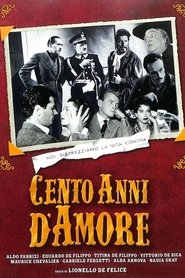Guido Gozzano (1883–1916) was an Italian poet and writer. He is considered a leader of the poetic school known as crepuscolarismo, characterized by disillusion, nostalgia, a taste for simple things, and a direct, unadorned style.
Gozzano graduated from the National College of Savigliano and briefly attended law school in Turin before beginning a literary career. La via del rifugio (1907; “The Road to Shelter”), his first volume of verse, showed the influence of Gabriele D’Annunzio. The second and last collection Gozzano published during his lifetime was I colloqui (1911; The Colloquies), which addresses the themes of youth, death, creative repression, nostalgia, regret, and contentment. It includes the poems “La signorina Felicita, ovvero, La Felicità” (“Miss Felicita), reminiscences of the poet’s visits with a simple middle-class girl, and “Totò Merùmeni,” a self-portrait of a melancholy poet. Much of Gozzano’s work was uncollected when he died from tuberculosis at age 32.
Gozzano graduated from the National College of Savigliano and briefly attended law school in Turin before beginning a literary career. La via del rifugio (1907; “The Road to Shelter”), his first volume of verse, showed the influence of Gabriele D’Annunzio. The second and last collection Gozzano published during his lifetime was I colloqui (1911; The Colloquies), which addresses the themes of youth, death, creative repression, nostalgia, regret, and contentment. It includes the poems “La signorina Felicita, ovvero, La Felicità” (“Miss Felicita), reminiscences of the poet’s visits with a simple middle-class girl, and “Totò Merùmeni,” a self-portrait of a melancholy poet. Much of Gozzano’s work was uncollected when he died from tuberculosis at age 32.
Show more expand_more
keyboard_double_arrow_down
